site search
online catalog
CIVIL WAR US NAVY LT. COMMANDER’S COAT AND BUCKLE OF ALEXANDER COLE RHIND - USS CONSTELLATION, USS CRUSADER, USS KEOKUK, FOUGHT CS BATTERIES AT DEEP BOTTOM, COMMANDED A “POWDER BOAT” AGAINST FT. FISHER, LATER REAR ADMIRAL
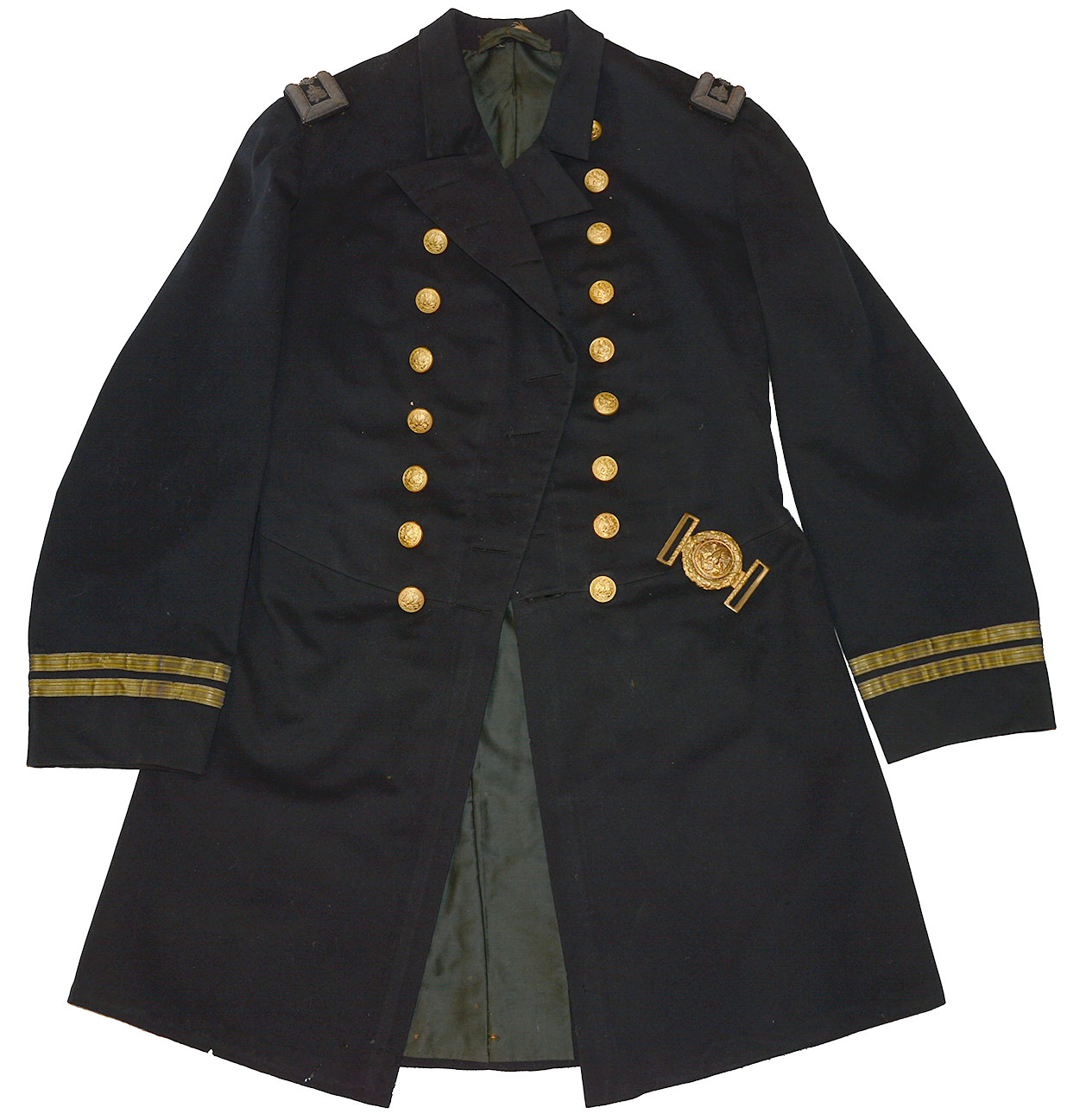
Hover to zoom

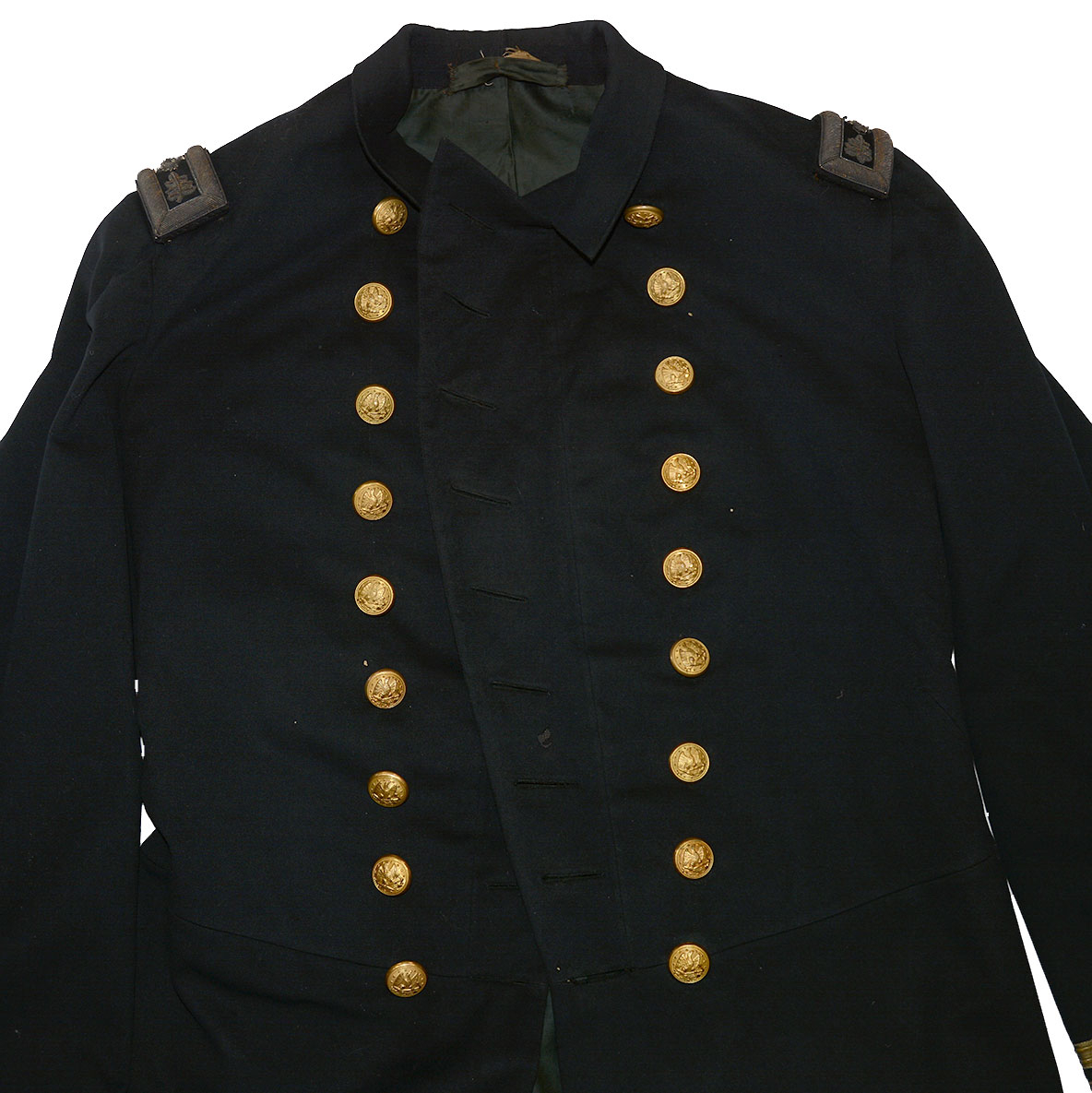
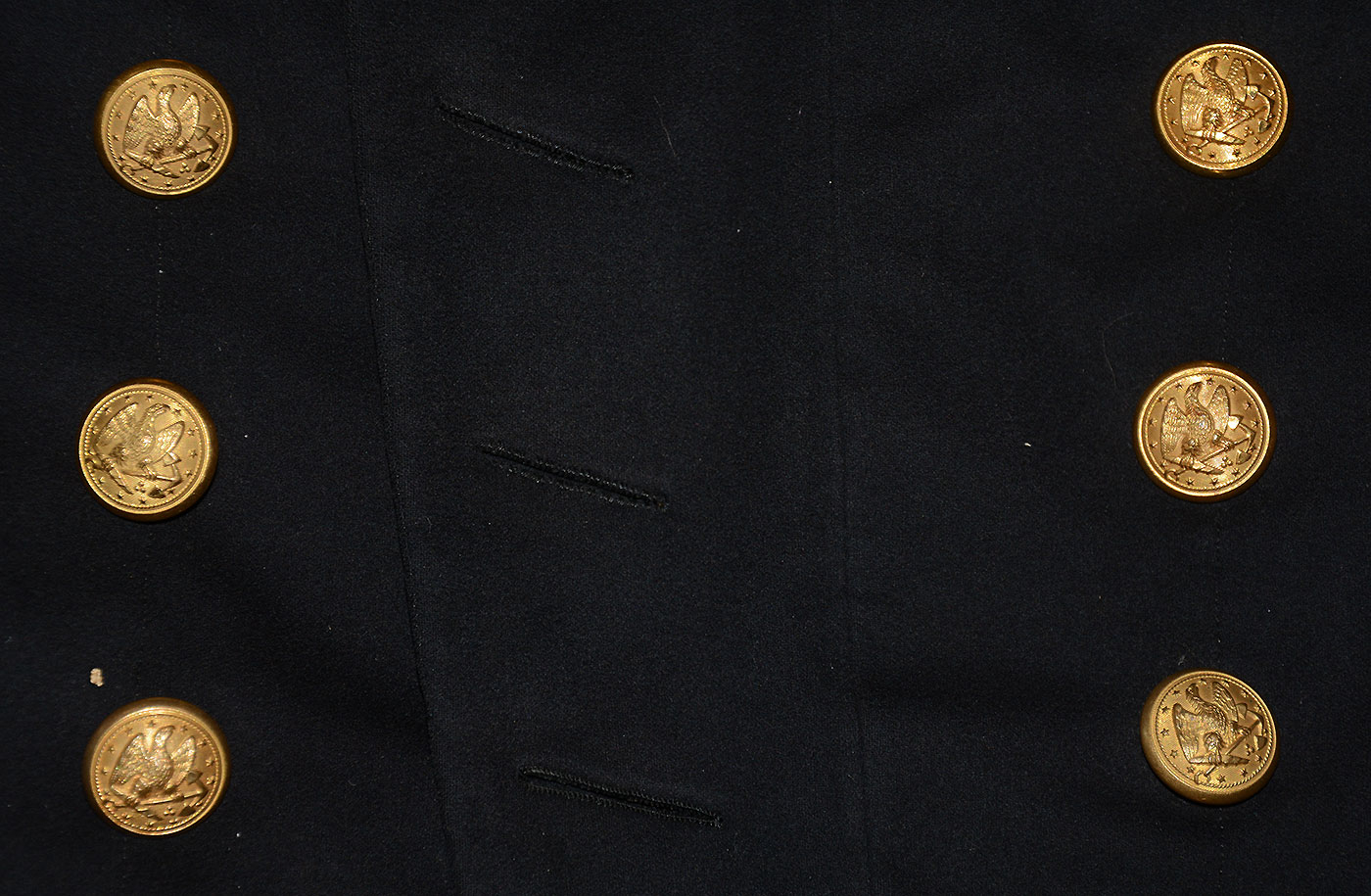
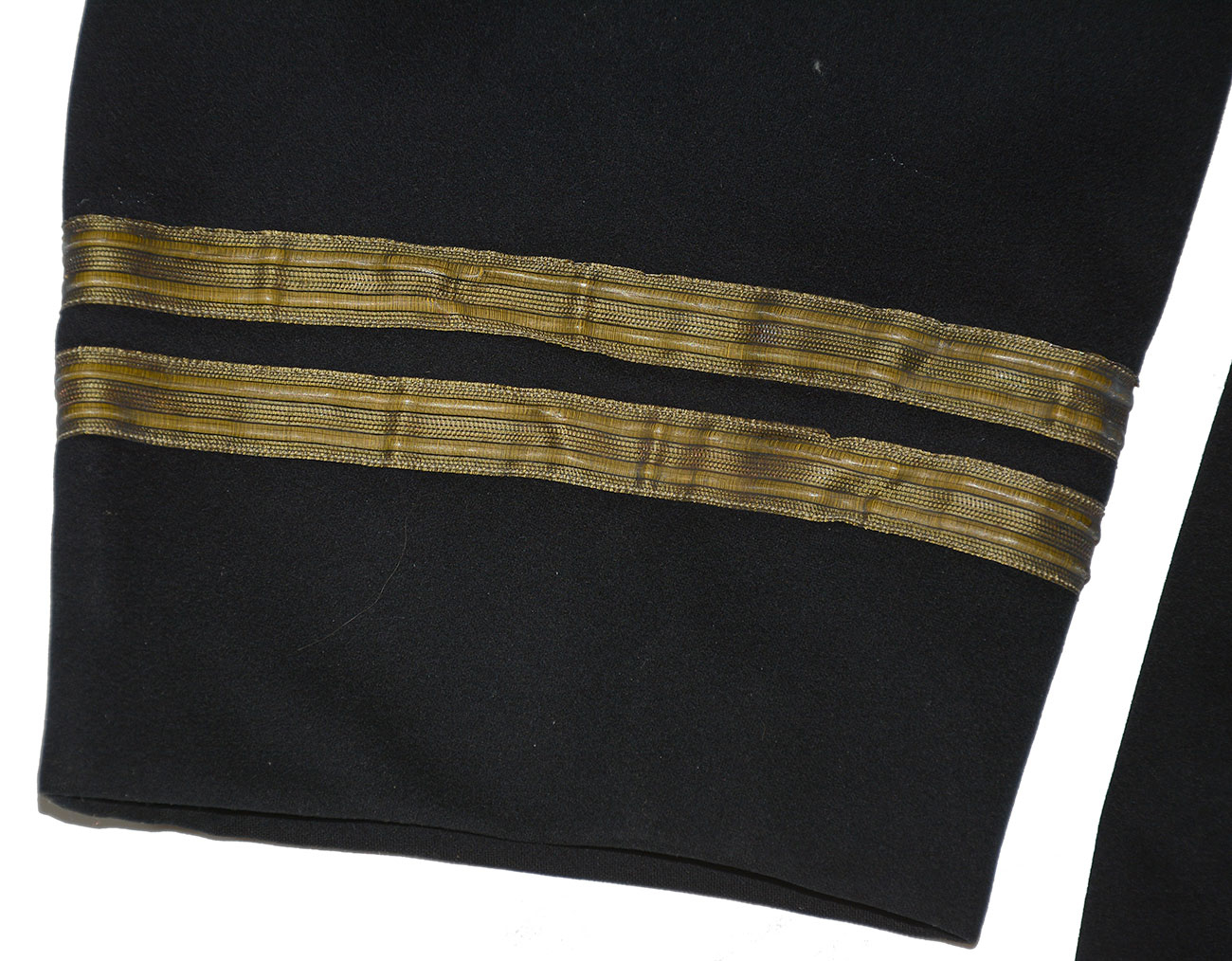
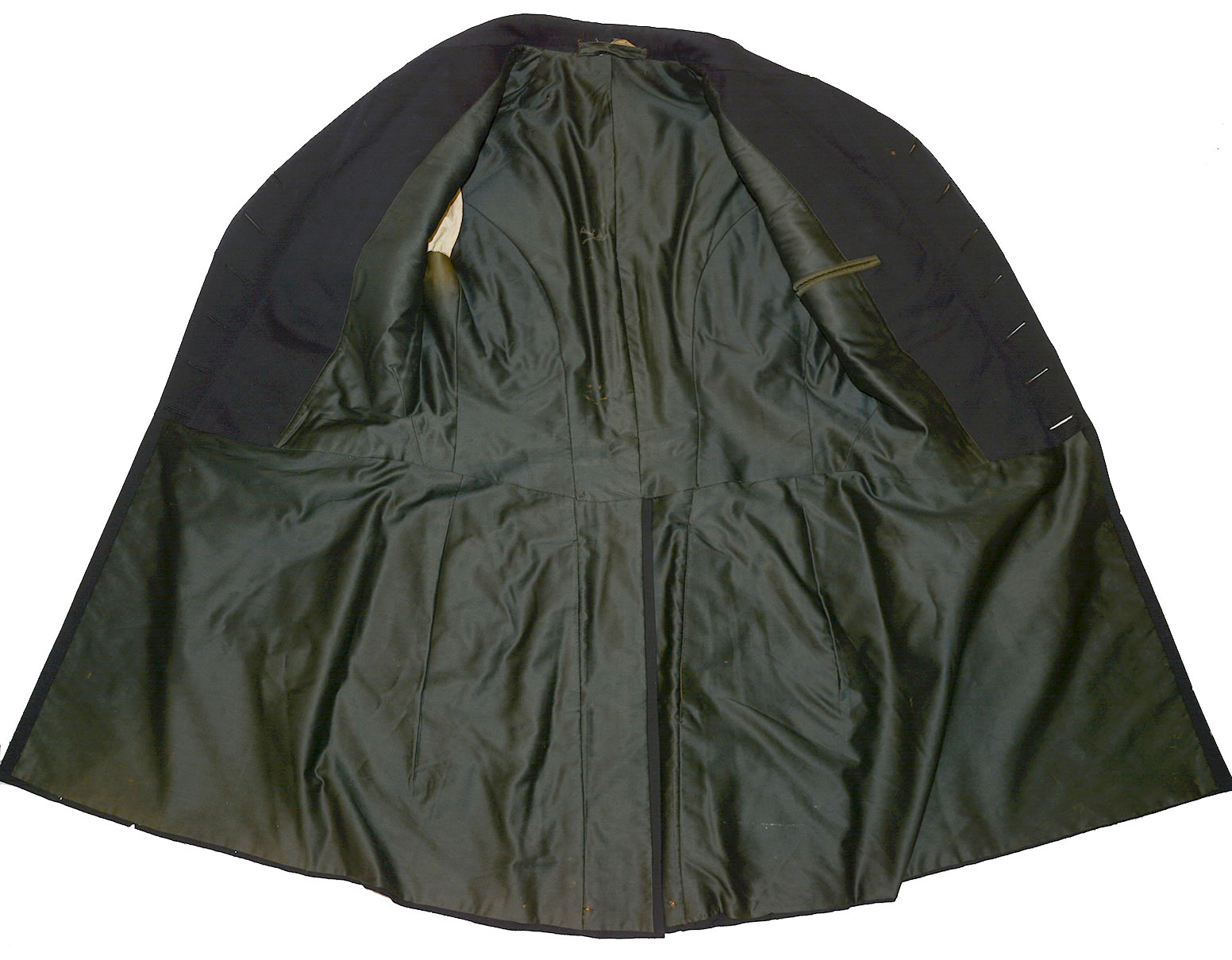
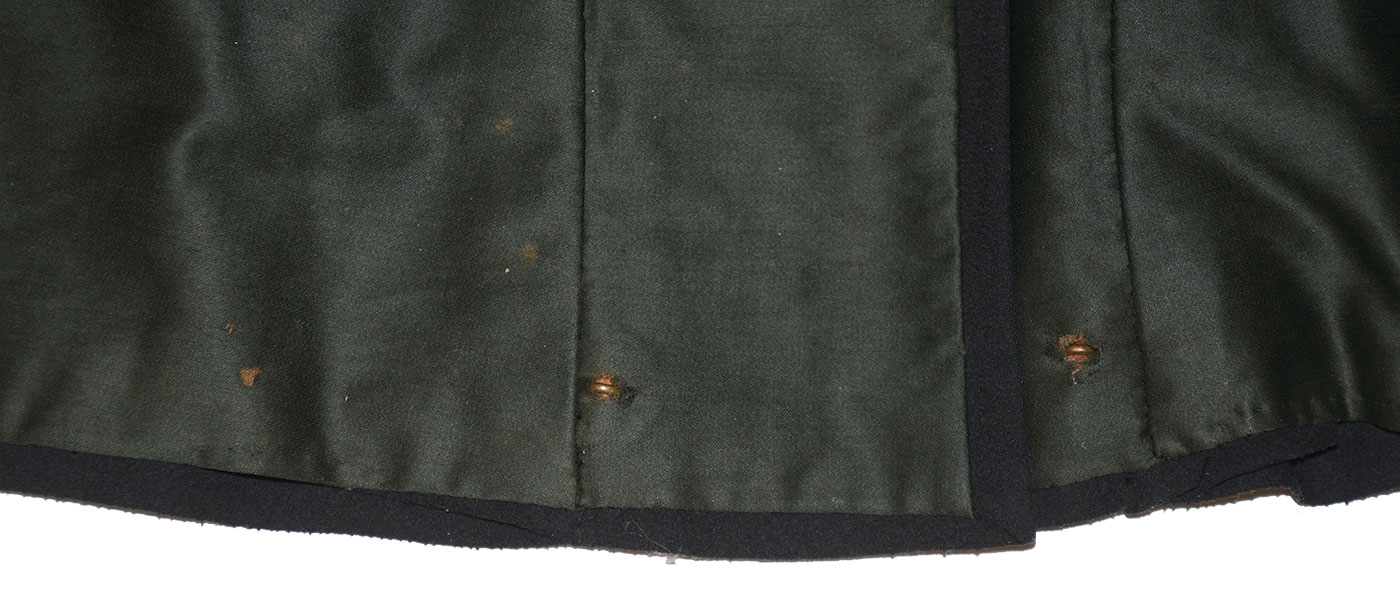
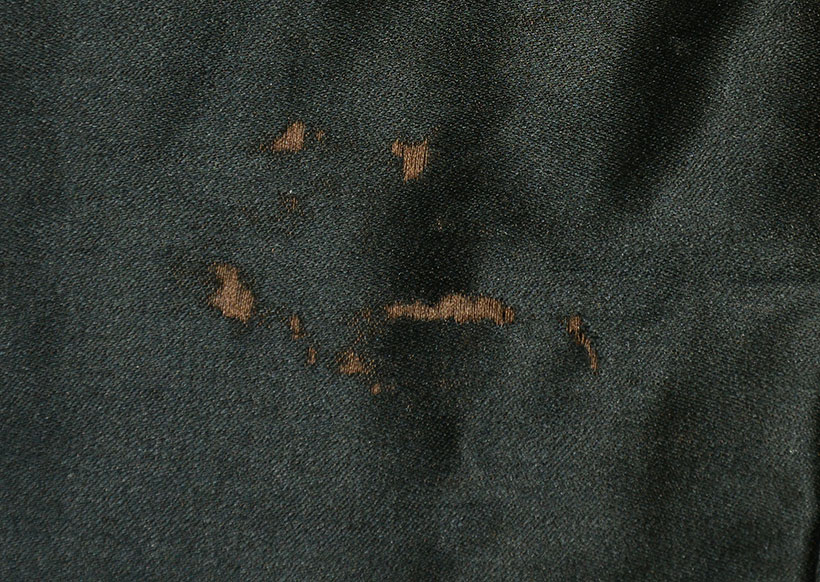
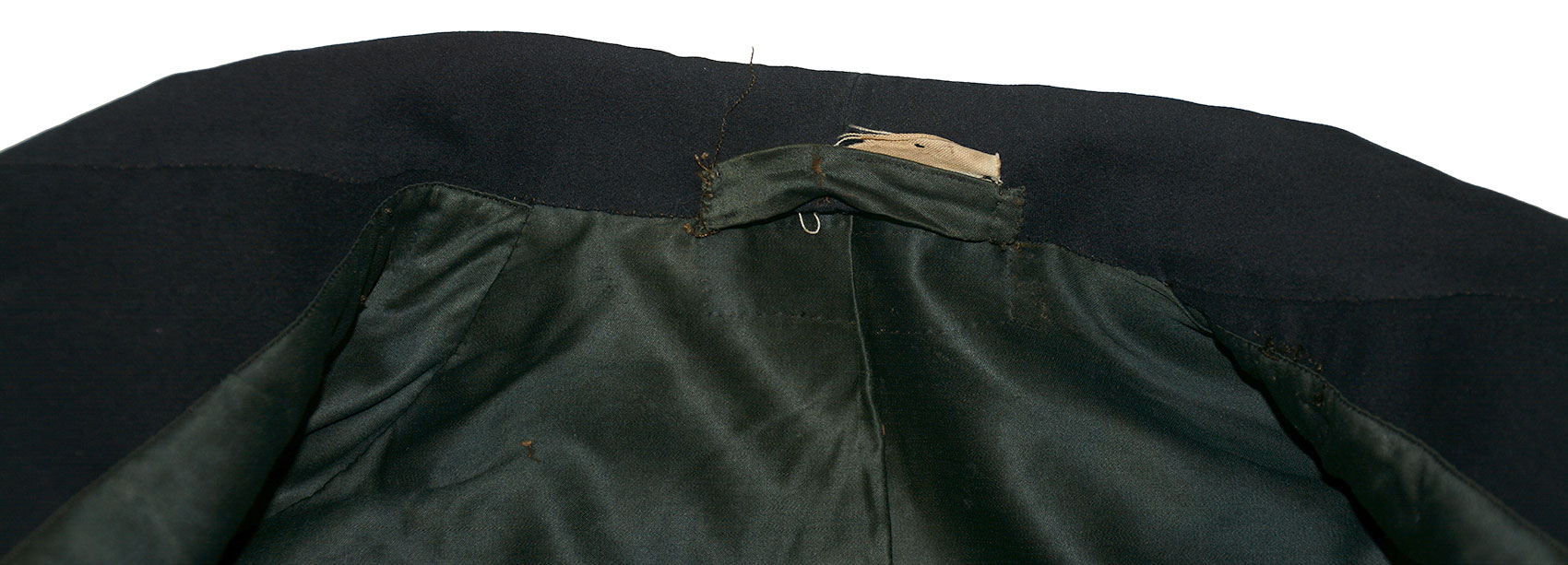
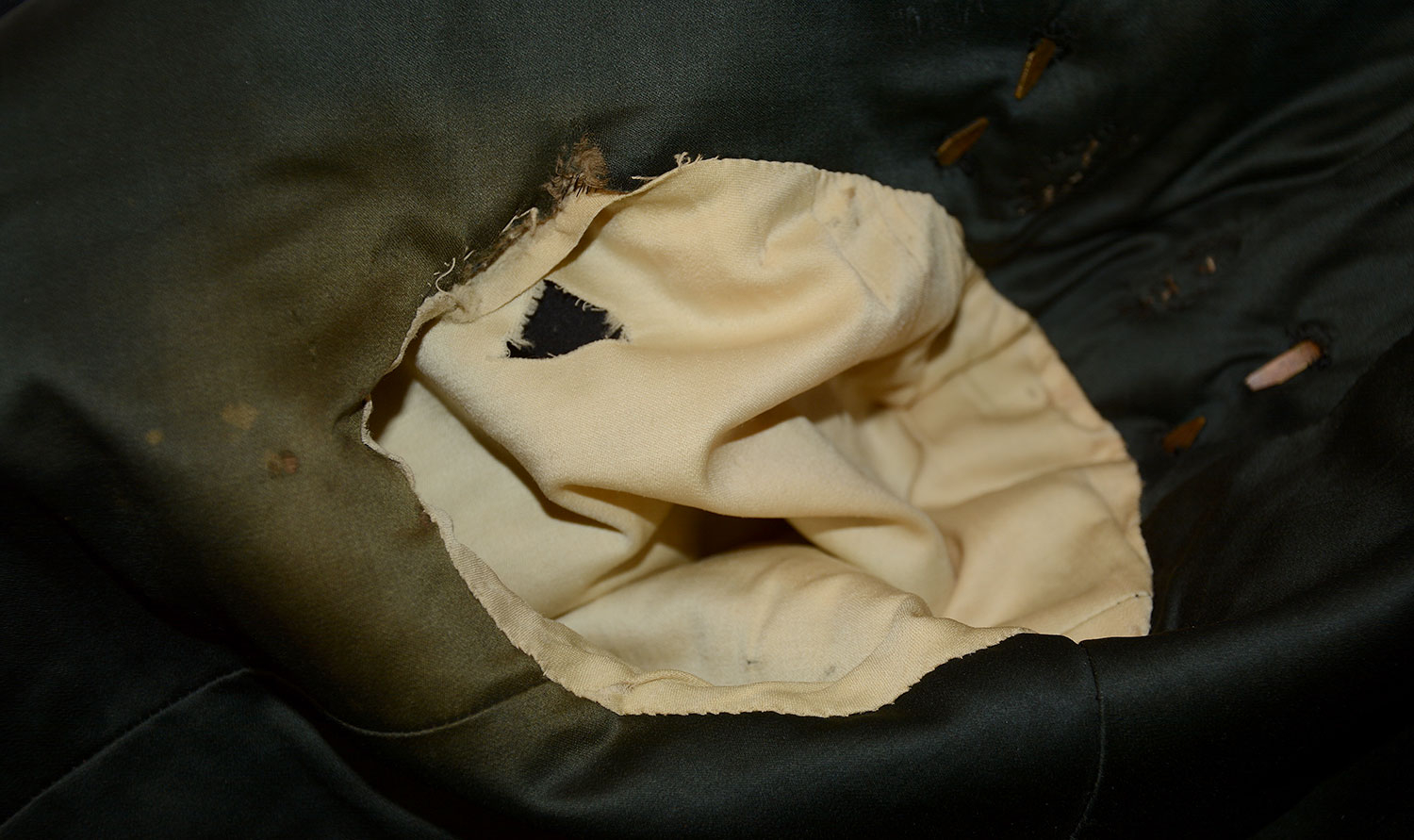
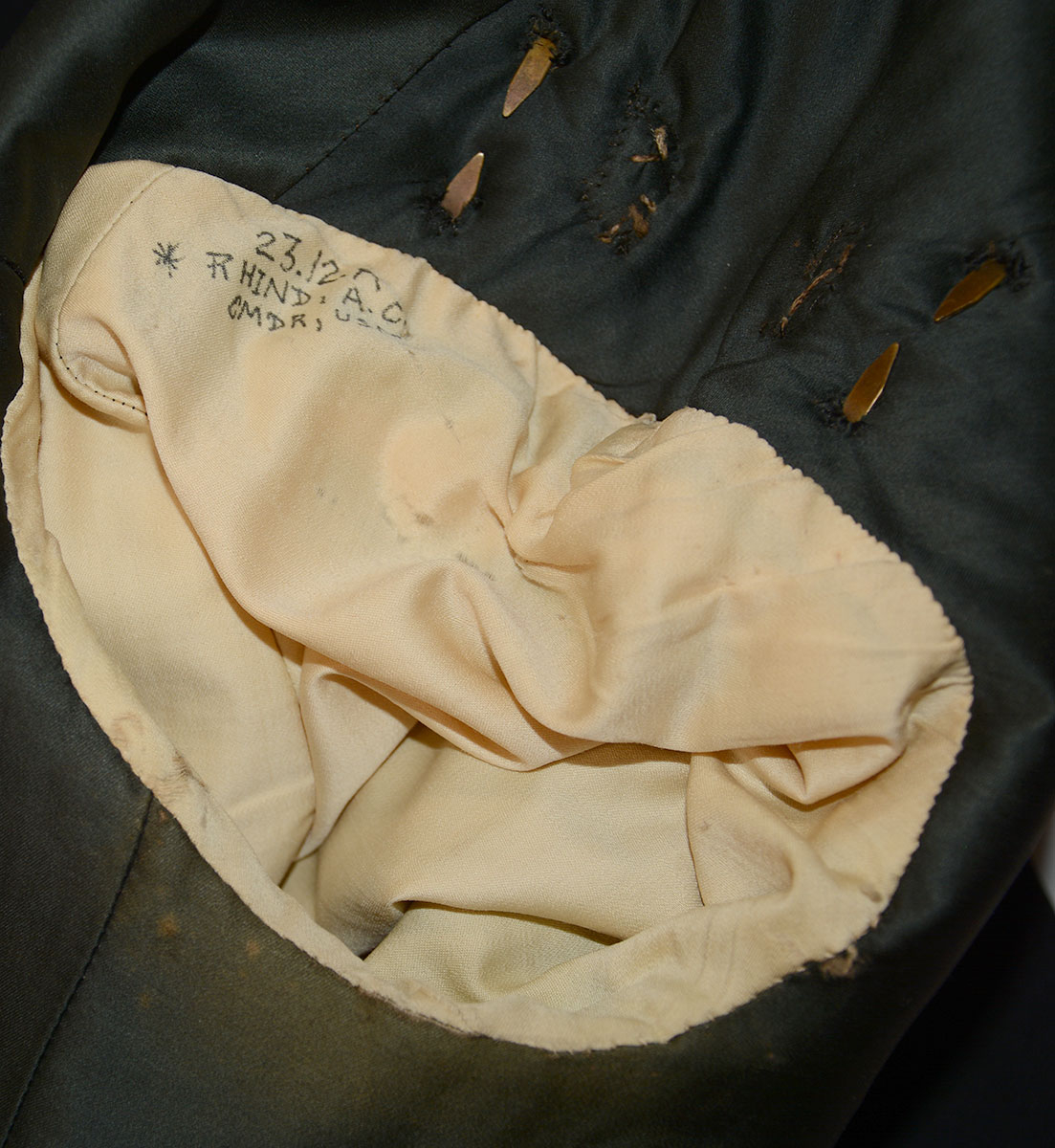
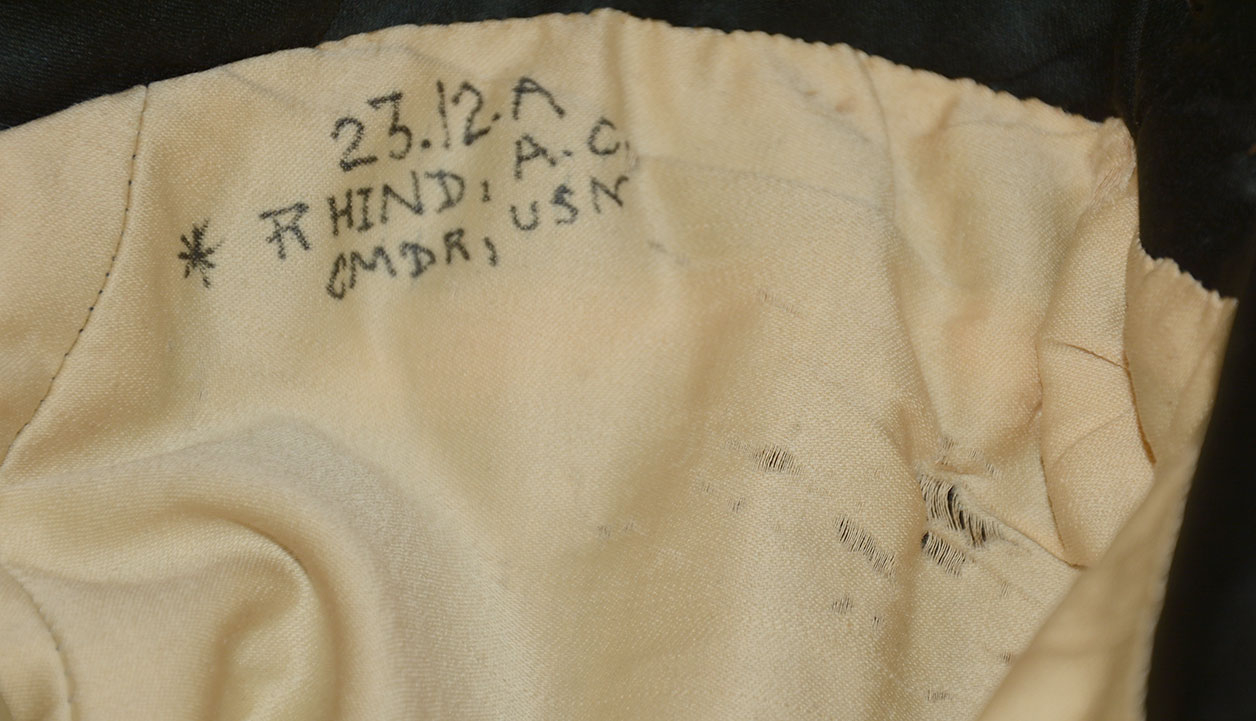
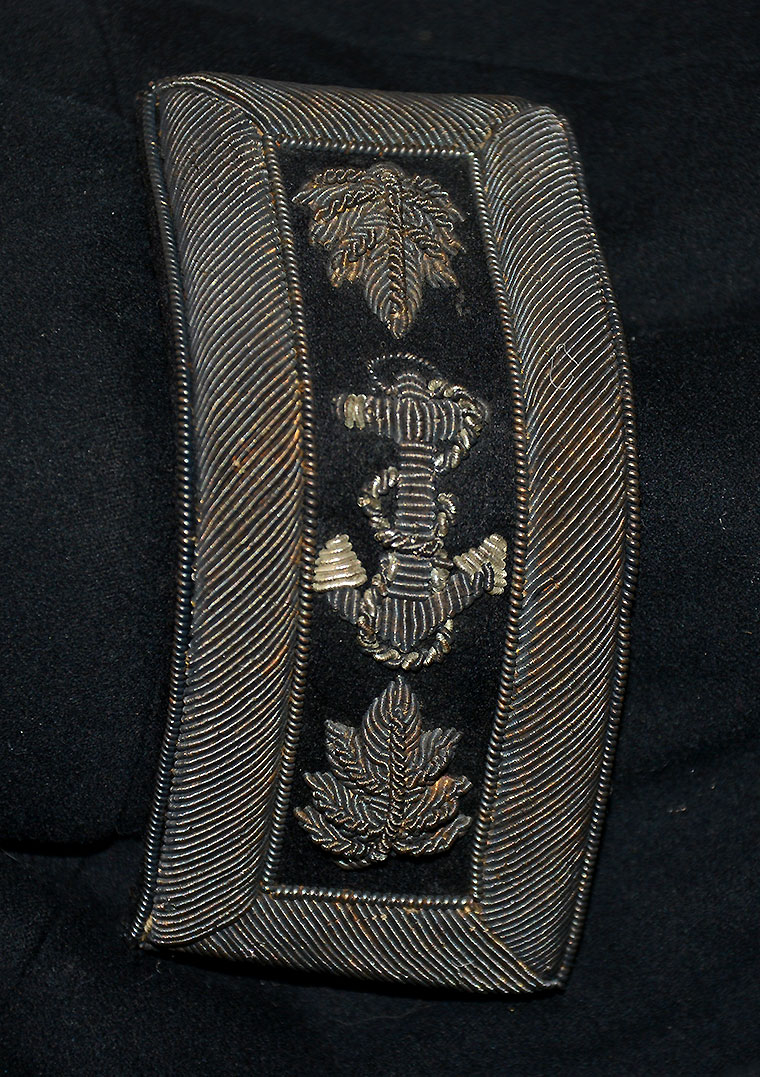
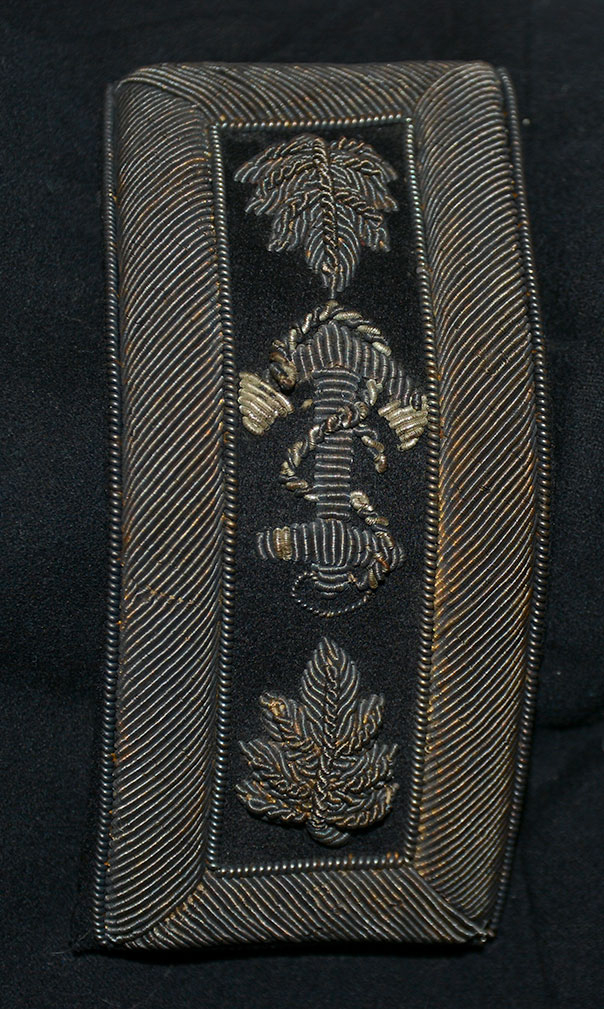
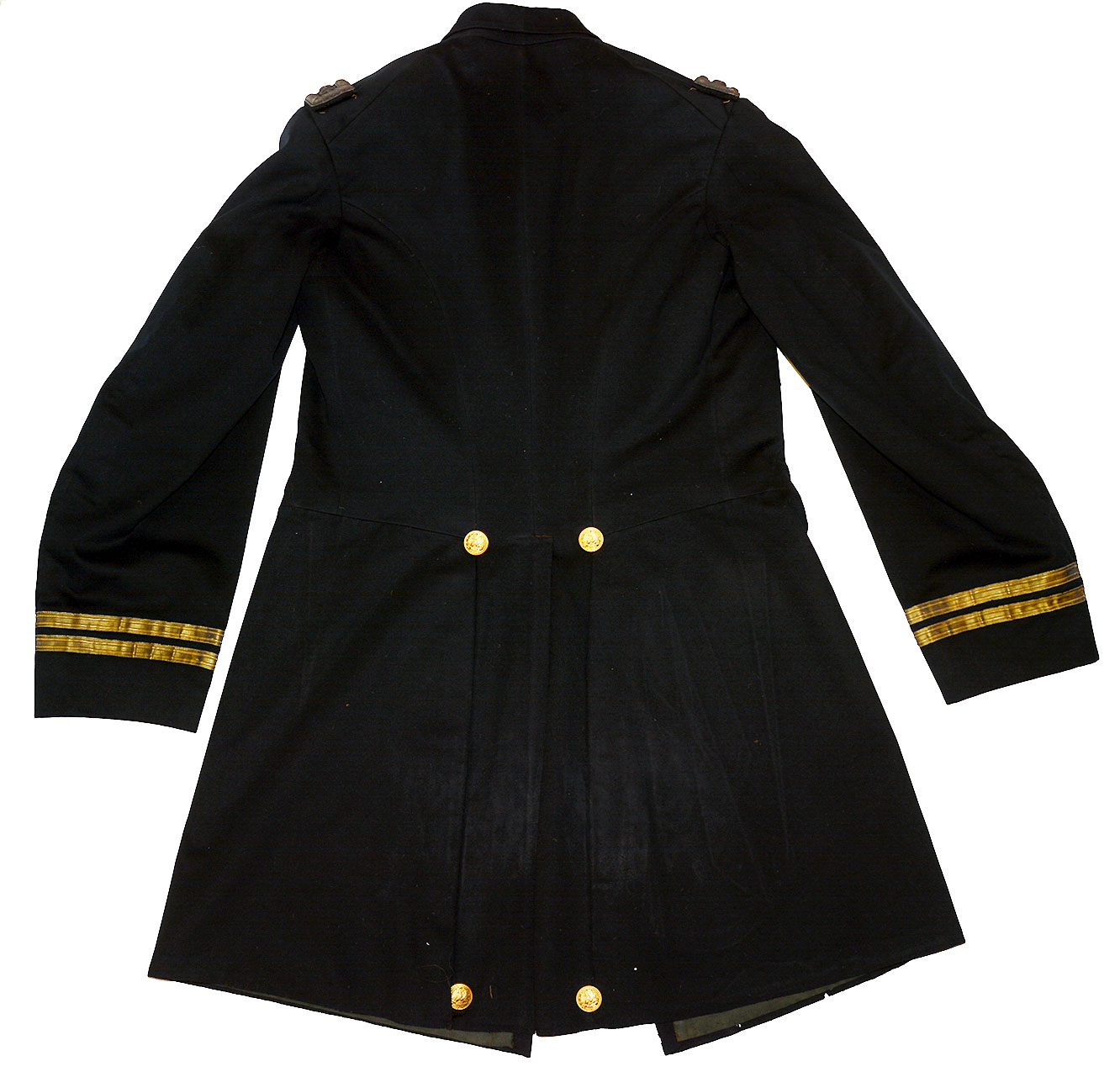
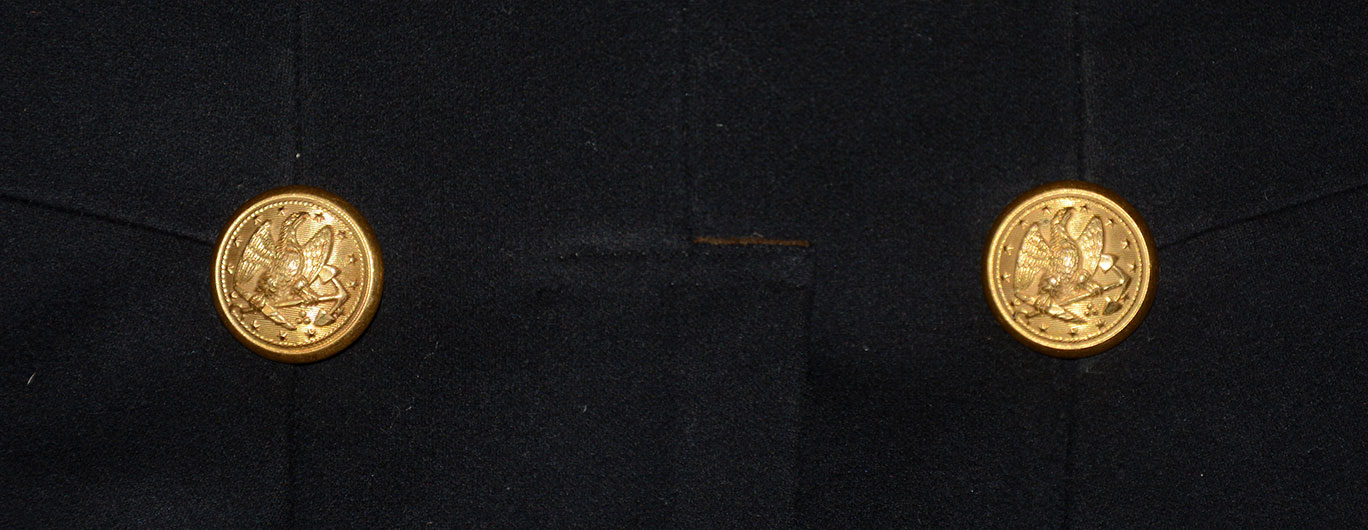
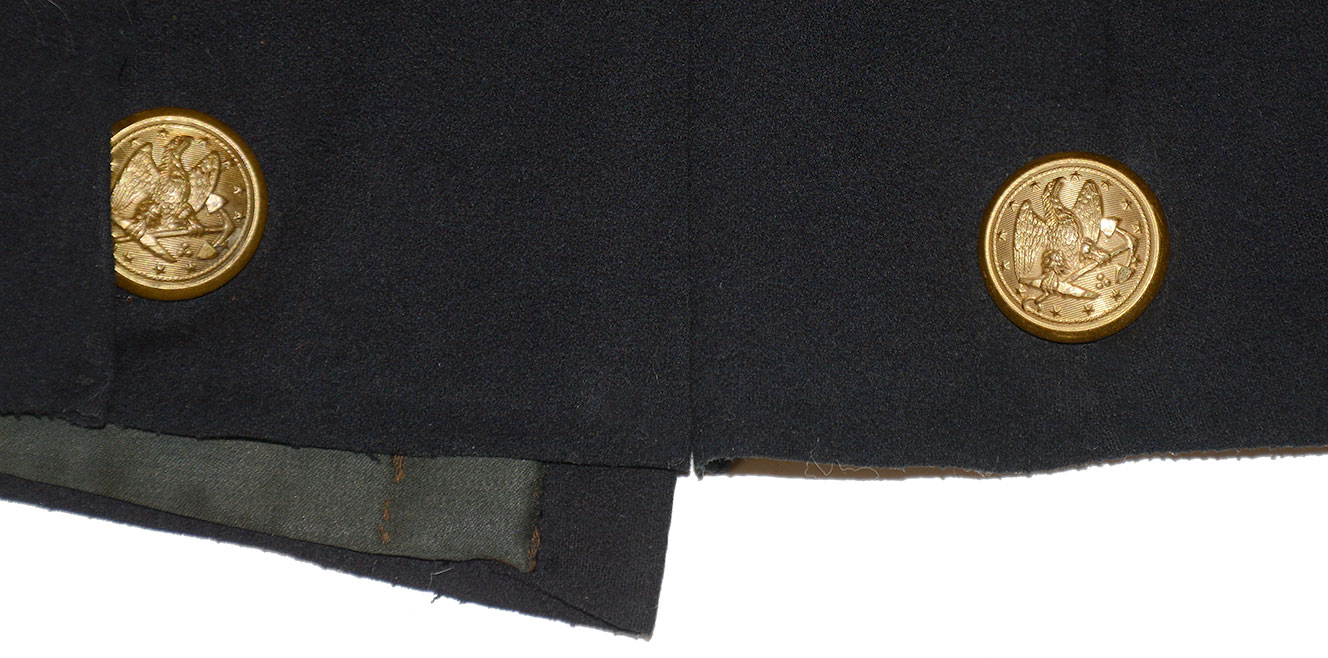

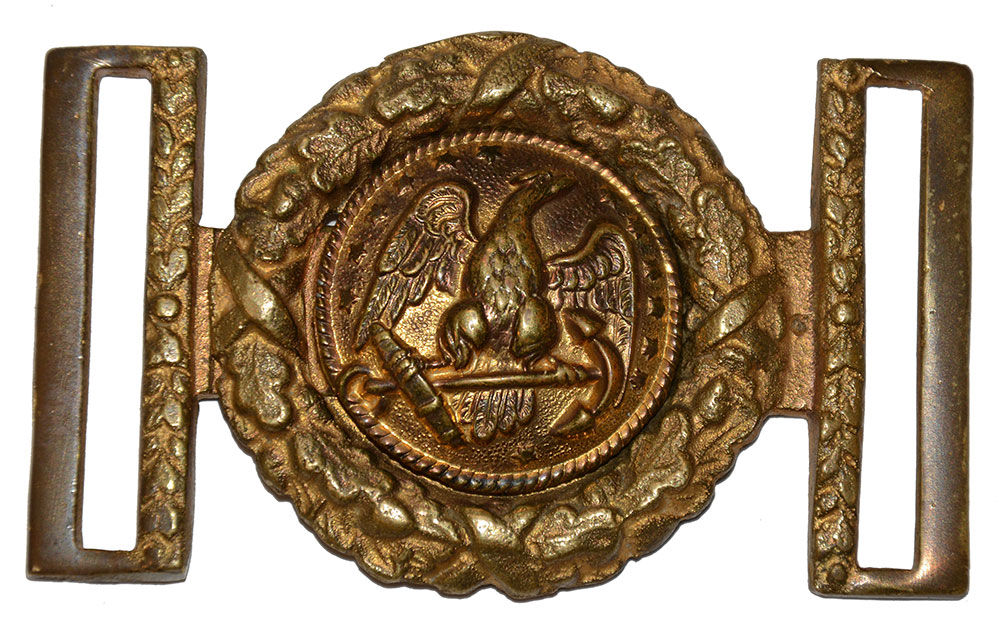
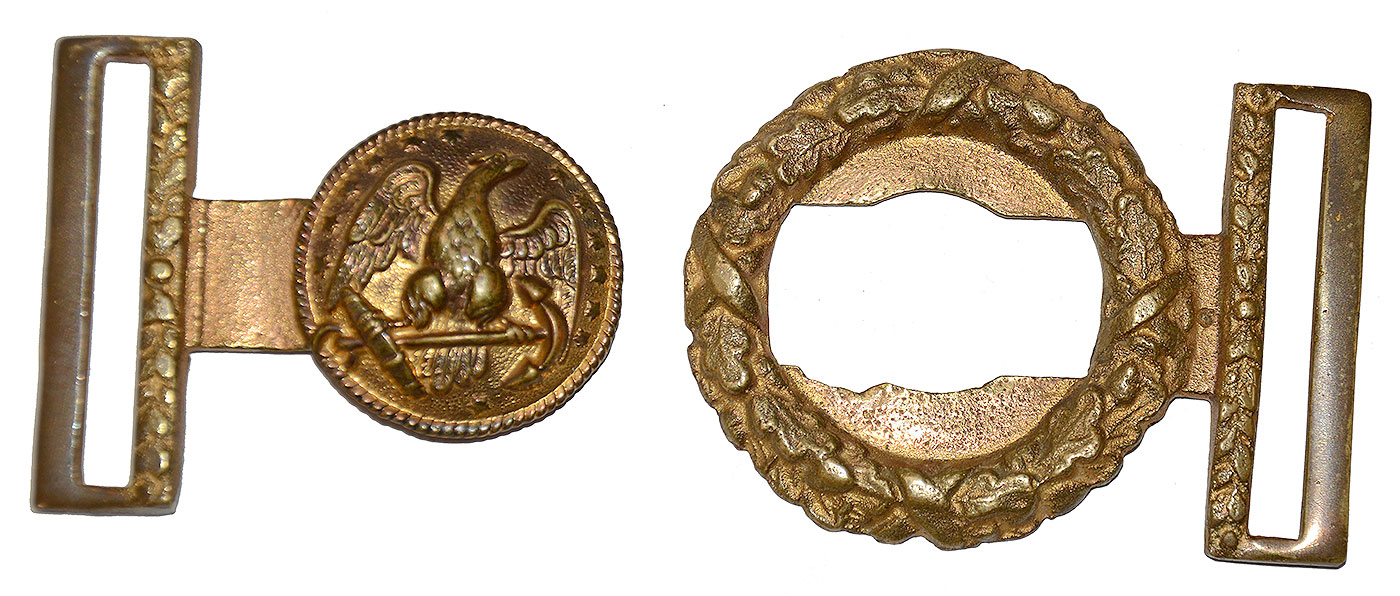
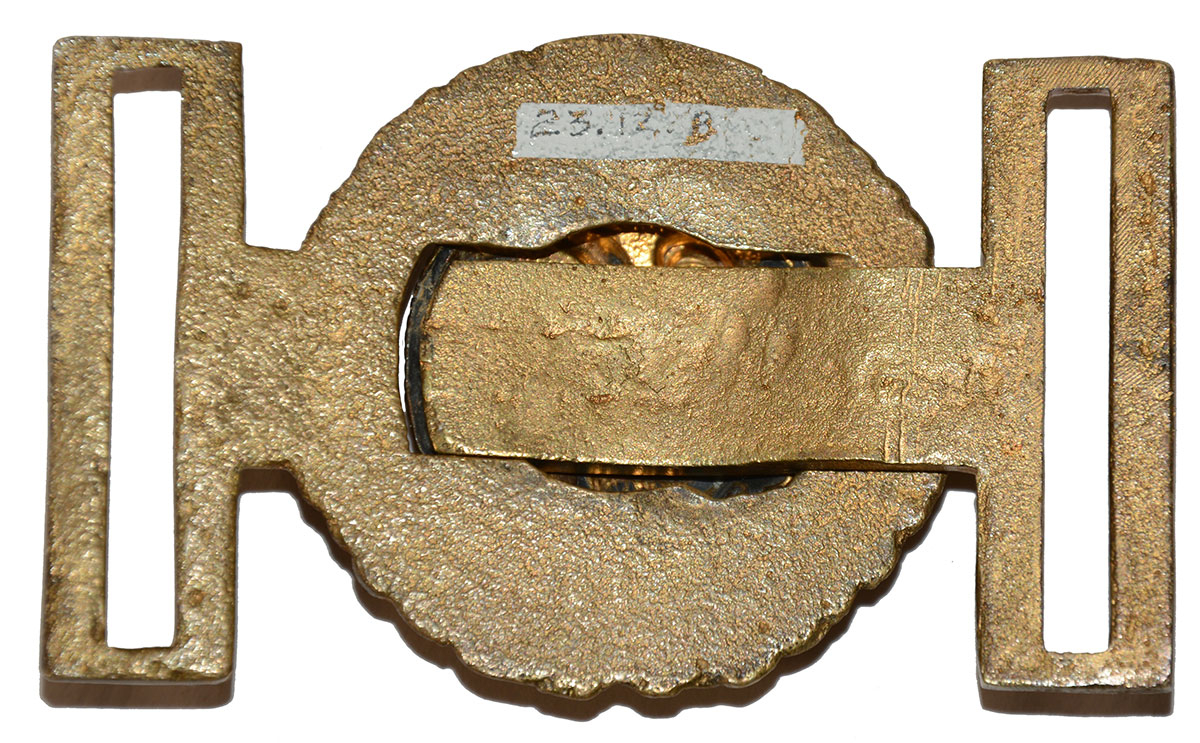
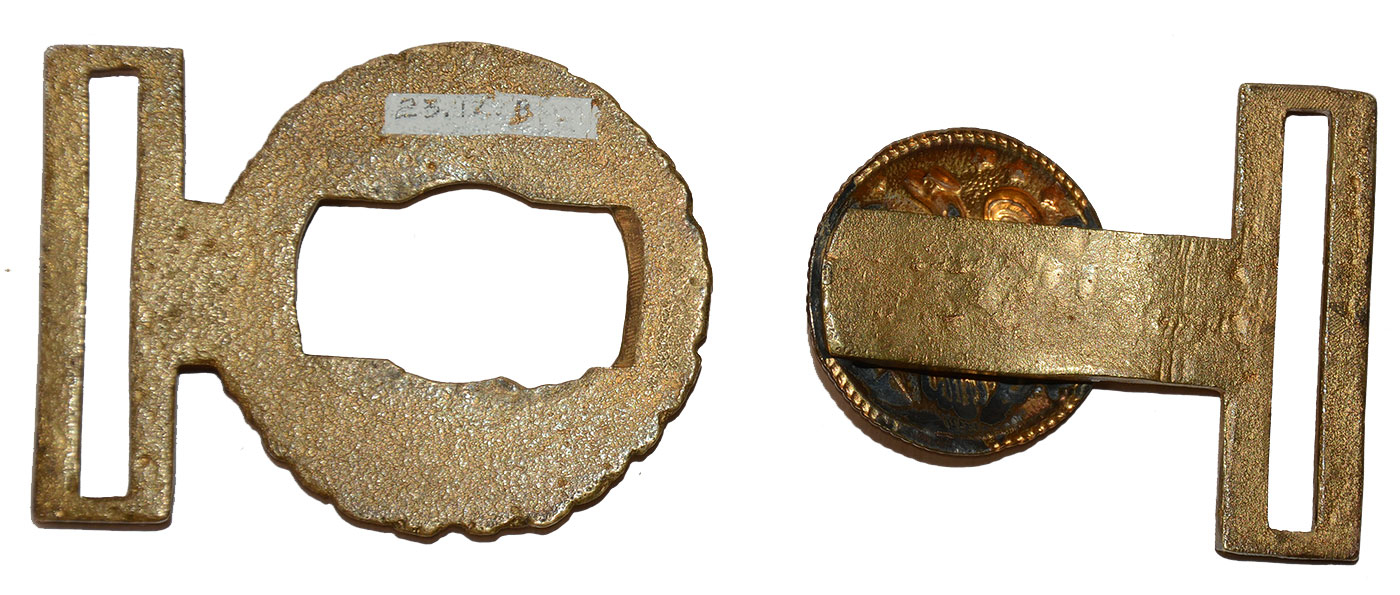
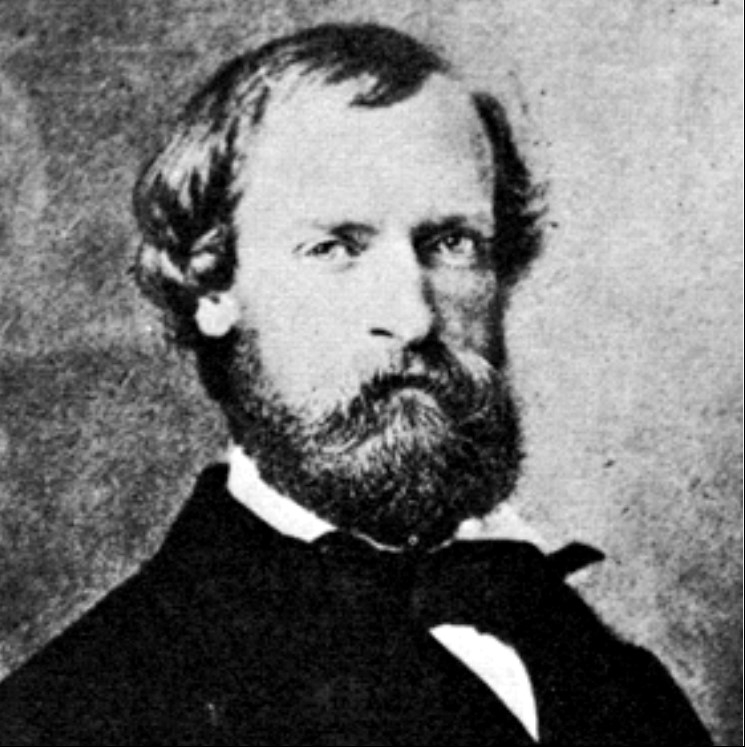
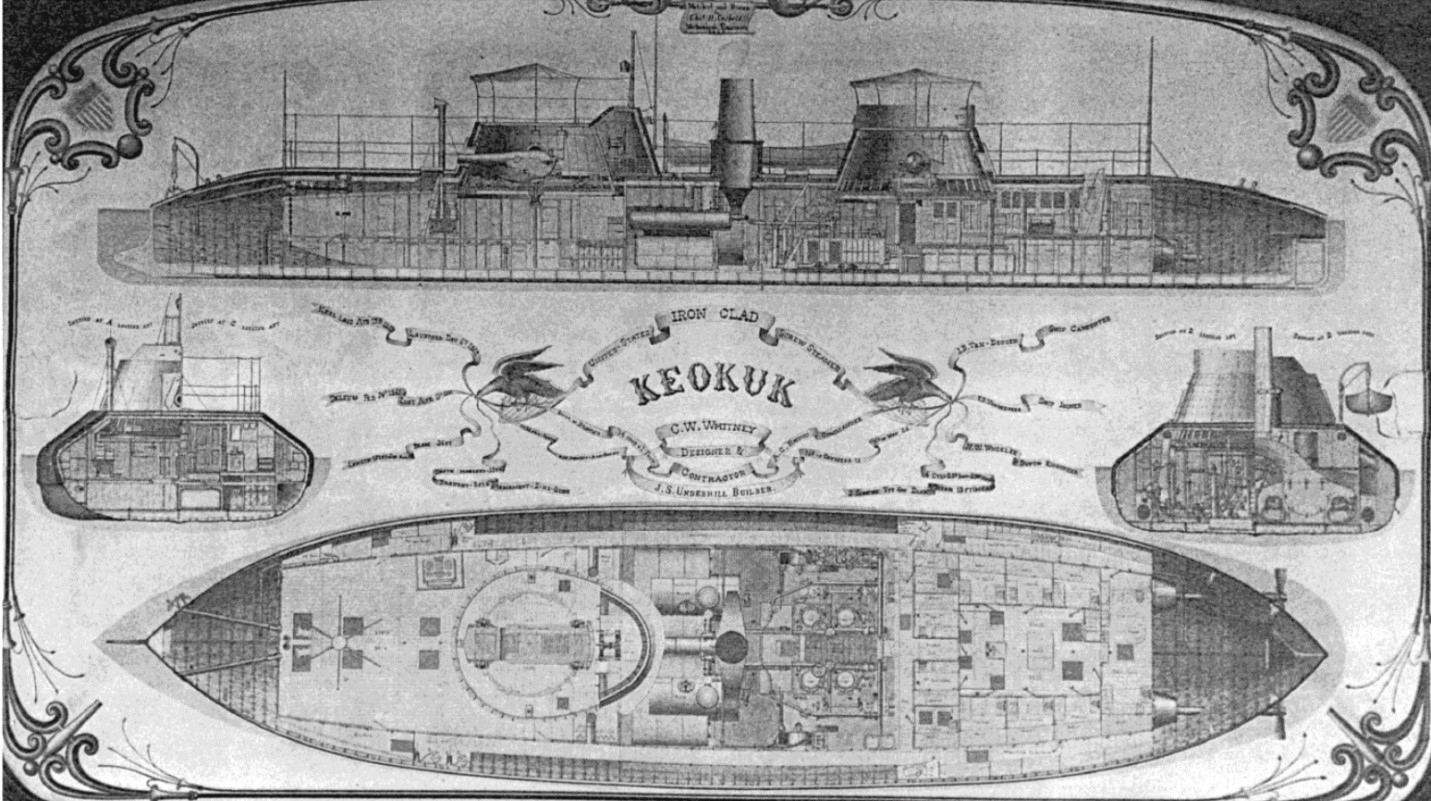
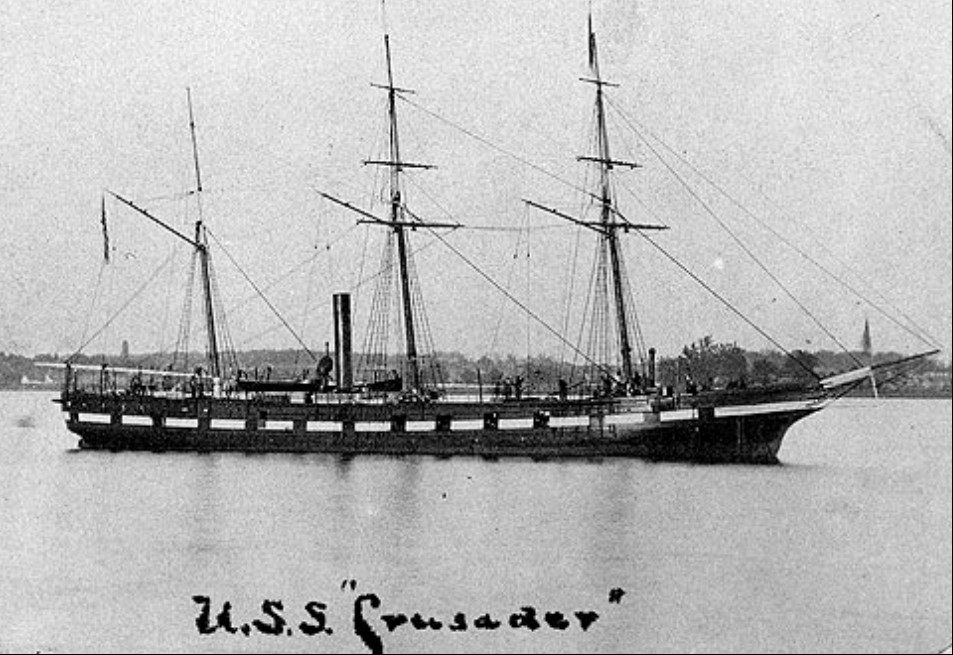
$8,500.00
Quantity Available: 1
Item Code: 1179-650
Shipping: Determined by Method & Location of buyer
To Order:
Call 717-334-0347,
Fax 717-334-5016, or E-mail
This is a very appealing regulation Civil War navy officer’s frock coat with interesting history. The coat is very dark blue, almost black, double-breasted with two rows of 9 US Navy officer’s button each down the front, two at the rear waist, and two at rear bottom of the long skirts. The cuffs each have two gold bullion tape bands of equal width, the rank insignia of a Lieutenant Commander in the 1862-64 period, matched by the bullion embroidered lieutenant commander shoulder straps with single wide borders, a silver oak leaf at each end with fouled anchor in the middle.
The collar is a regulation, flat collar. The interior is lined in the body and skirts with black silk oxidizing slightly toward green. There is a single pocket inside the left breast. The sleeves are lined in a fine white fabric. All seams are tight. The lining shows just a few minor rubs in center of the back. The exterior has one or two pencil point moth nips, but you have look very hard to find them. The cuff braid has oxidized to a muted gold. The bullion of the shoulder straps has oxidized to a silver gray, though the tips of the anchors and strands of the cable are light silver. The jacqueron wire edging is in place inside and out. The dark blue ground of the straps is very good.
The left sleeve at the shoulder has a black ink inscription: “23.12.A / RHIND, A.C. / CMDR / USN.” The coat comes from the collections of the Texas Civil War Museum, but this is likely the inventory or collection number of a museum or historical society from whom they obtained it. The coat comes with a 2014 email from a dealer notifying them of the coat’s availability. With the coat is a Civil War two-piece interlocking US Navy officer’s sword belt plate with a matching collection number in black ink on a white ground on the reverse: “23.12.B.” that makes clear the coat and buckle belong together. The plate is in very good condition, with 40 or 50 percent gilt remaining.
Rhind was midshipman in 1838 and from 1839 to 1844 served in the Mediterranean, West Indies, and off the African coast. He entered the Naval School in 1844, becoming a passed midshipman in 1845. He was on the US coast survey 1846 aboard the brig Washington and present at the Mexican War battles of Alvarado and the First Battle of Tobasco. He saw service with coast survey again and then in the East Indies and the Pacific, with promotions to master in 1853 and lieutenant in 1854. He left the navy briefly after a court martial in 1855, but was reinstated, serving in the USS Constellation from 1859 to 1861. In April 1862 while commanding the USS Crusader he took part in the destruction of Confederate works on the South Edisto, Dawho and Pon-Pon Rivers and was promoted to Lieutenant Commander July 16, 1862 and to commander January 2, 1863.
Rhind commanded the ironclad Keokuk in the April 7, 1863, attack on Charleston. Sometimes mistaken for a double-turret monitor, the ship mounted two stationary gun towers, each with three gun ports to enable a single 11-inch Dahlgren on rotating slide carriage to fire in different directions. The armor was a composite of wood and iron layers that proved wholly inadequate in battle. The ship was struck over 90 times in half an hour and “completely riddled,” sinking the next day from 19 holes below the waterline. Rhind was wounded slightly, a contusion to the leg. Another 13 of the crew were wounded, one mortally. The ship’s two guns were salvaged by the Confederates.
He later commanded the Paul Jones, Wabash, and Agawam, in which he received official praise for the ship’s gallantry and endurance while engaging Confederate batteries at Deep Bottom in August 1864. In December Rhind took part in the attacks on Fort Fisher, commanding a “powder boat” that was towed close to the fort and then detonated by timed fuzes, having agreed with a fellow officer to blow it up with themselves aboard if they were boarded before the fuzes could be lit. That explosion, however, failed to do significant damage and two days later Rhind was aboard another vessel steering close to the fort to plant a marker buoy so it could be bombarded at close range.
After the war Rhind commanded a receiving ship at New York City, and then the Brooklyn Navy Yard, receiving promotion to Captain in 1870, followed by command of the USS Congress in the European Squadron 1872-1876 with promotion to commodore in 1876. He later served as lighthouse inspector, president of the Board of Inspection and Survey, and governor of the Philadelphia Naval Asylum, retiring as a Rear Admiral in 1883. He was a member of both MOLLUS and the Aztec Club, and died in New York in 1897.
This a very strong looking coat, and buckle, from an officer who saw some serious action. [sr] [ph:L]
~~~~~~~~~~~~~~~~~~~~~~~~~~~~~~~~~~~
THIS ITEM, AS WITH ALL OTHER ITEMS AVAILABLE ON OUR WEB SITE,
MAY BE PURCHASED THROUGH OUR LAYAWAY PROGRAM.
CLICK HERE FOR OUR POLICIES AND TERMS.
THANK YOU!
Inquire About CIVIL WAR US NAVY LT. COMMANDER’S COAT AND BUCKLE OF ALEXANDER COLE RHIND - USS CONSTELLATION, USS CRUSADER, USS KEOKUK, FOUGHT CS BATTERIES AT DEEP BOTTOM, COMMANDED A “POWDER BOAT” AGAINST FT. FISHER, LATER REAR ADMIRAL
Most Popular
Historical Firearms Stolen From The National Civil War Museum In Harrisburg, Pa »
Theft From Gravesite Of Gen. John Reynolds »
Selection Of Unframed Prints By Don Troiani »
Fine Condition Brass Infantry Bugle Insignia »
featured item
THEFT FROM GRAVESITE OF GEN. JOHN REYNOLDS
A large artillery shell, one of pair that sit on either side of the grave of Gen. John F. Reynolds in Lancaster Cemetery, Lancaster, PA has been removed from the site. If anyone comes into contact with the shell or has any information regarding its… . Learn More »


